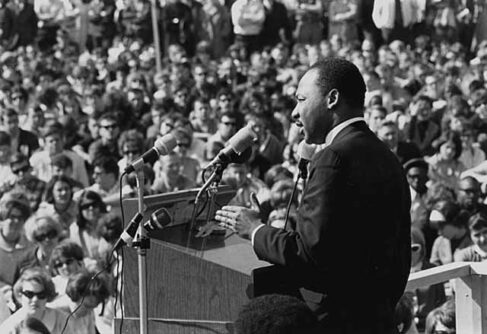Harvard political scientist Robert D. Putnam was elevated to the status of leading public intellectual by his 2000 book Bowling Alone: The Collapse and Revival of American Community. He has just brought out a new book, Our Kids: The American Dream in Crisis. Our Kids is sure to receive much attention—indeed, the conversational tone of the book suggests that Putnam wrote Our Kids with the aim of shaping the larger public debate rather than addressing a strictly scholarly audience.
In his new book, Putnam draws on both empirical data and interviews with young people from across America to argue that changes in the economy and the collapse of the working-class family have made it much, much harder for young adults from poorer homes to move up the economic ladder than was the case a half-century ago. He paints a compelling portrait of greatly diminished life prospects for young people who are raised without two doting parents, who attend failing schools, and who are raised in communities that lack the churches and social institutions where children can find friends, mentors, and models. His arguments are compelling and the tales of individual young people are moving.
Many elements of Putnam’s arguments will be familiar to those who have read Charles Murray’s Coming Apart: The State of White America, 1960–2010; both scholars are concerned with declines in mobility over the last half century, and both point not only to changes in the economy but changes in religious, community, and family life as contributing to the tarnishing of prospects for those at the lower end of the economic ladder. And, Putnam and Murray are hardly alone in pointing to a decline in mobility and these factors as contributing causes of that decline.
But, given that many are already persuaded of the mobility is declining, the most anticipated section of Putnam’s Our Kids must be his proposals for how to address this problem.
Here, Putnam disappoints. He surveys the range of available policy levers, and they seem puny in comparison to the task of reversing the decline in social mobility. For example, Putnam offers Head Start as a model to address gaps in early childhood learning, even though he is compelled to admit that, after initial favorable indications, most “studies of Head Start have not shown such substantial effects.”
But what about the role for individuals—how should an individual moved by Putnam’s account of the severe barriers faced by lower-class kids do? Here’s what Putnam recommends:
If you are concerned about the issues discussed in this book, here is something you could do right now. Close this book, visit your school superintendent—better yet, take a friend with you—and ask if your district has a pay-to-play policy [that imposes a fee to participate in extracurricular activities like sport teams and orchestra]. Explain that waivers aren’t worth the paper they’re written on, because they force poor kids to wear a virtue yellow star, saying, “I’m so poor my parents can’t afford the regular fee.”
When I read this, I was incredulous: Putnam’s call to action is to meet with the school superintendent?! Does one of America’s most esteemed social scientists not know how difficult it is to revise a school district policy? Why does the man who wrote so eloquently about the decline of neighborhood associations and volunteerism in Bowling Alone now recommend addressing these issues through a program mired in the bureaucracy of the public schools? (And, why would Putnam suggest that the stigma of poverty in America, as severe as it is, should be compared to the stigma Jews faced in Nazi Germany?)
Surely Putnam knows that no school superintendent is going to change policy after a visit from a couple concerned citizens. I suppose what he means to recommend is that well-informed citizens with time to spare should focus their efforts on trying to change public policy.
But, why not simply step up and help some young person who needs a mentor, or take on a role in a neighborhood organization? Fifteen years ago, Putnam concluded Bowling Alone with an acknowledgement of the importance of both public policies and individual actions as response to the crisis of declining civic institutions:
Leaders and activists in every sphere of American life must seek innovative ways to respond to the eroding effectiveness of the civic institutions and practices that we inherited. At the same time we need to fortify our resolve as individuals to reconnect. . . . Actions by individuals are not sufficient to restore community, but they are necessary.
The obstacles to mobility that Putnam documents are severe, perhaps intractable. And it’s surely right that we need more sound public policies to address them. But it’s also the case that economic mobility ultimately comes down many separate individuals making their way up the economic ladder—helped by other individuals along their way. Kids in America—“our kids,” as Putnam rightly puts it—need help from neighbors along with better policies set by distant bureaucrats. And that means, as Putnam put it in Bowling Alone, individuals, one by one, resolving to reconnect with their fellow citizens.







Where can I get this book? At Politics and Prose?
Needs more arguments, not repeating arguments. What should parents do to help kids instead of going to the superintendent?